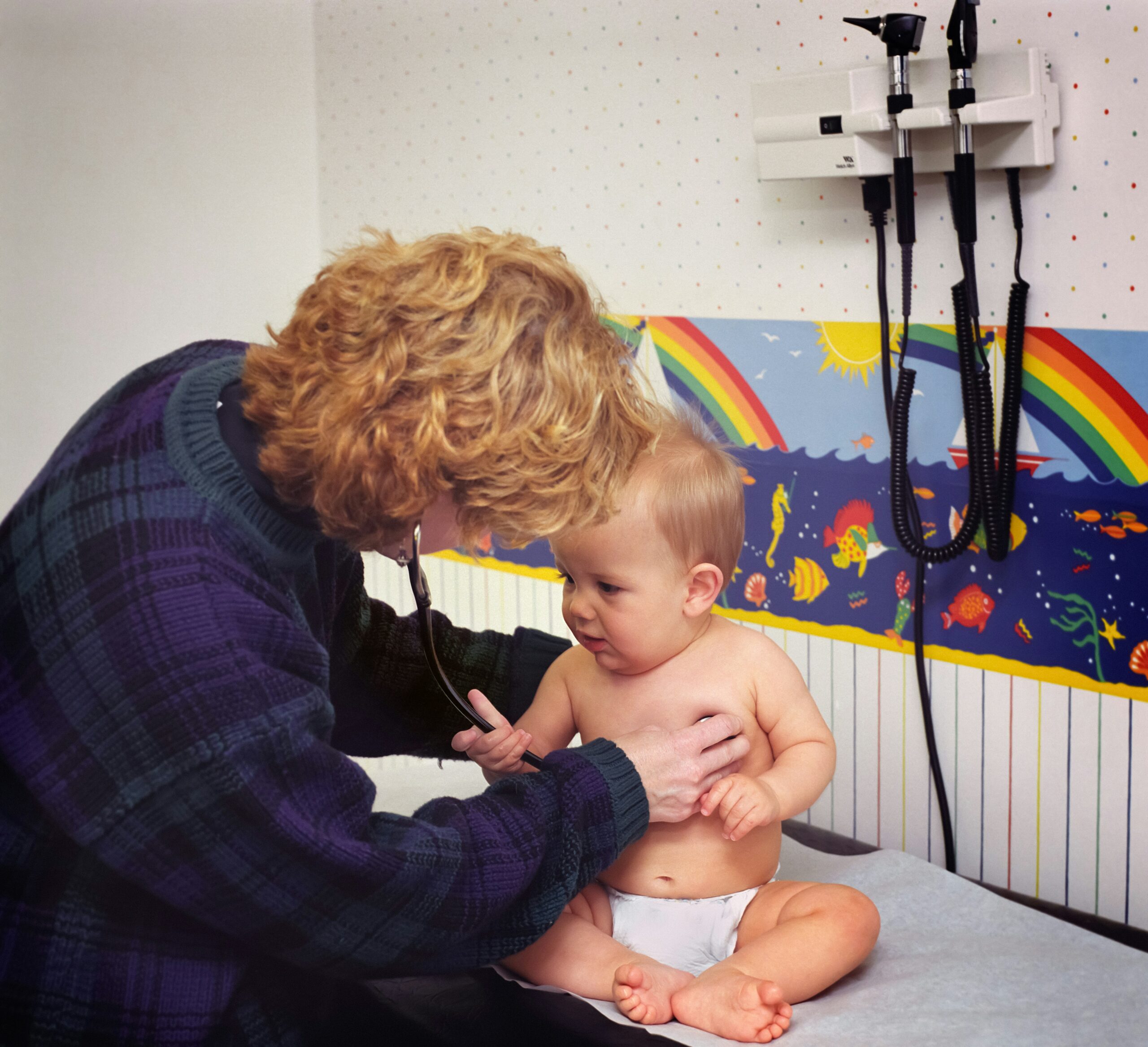Parents, isn’t it astonishing how a routine cough or a late-night fever can suddenly set off a whirlwind of questions—sometimes worry, sometimes confusion, and always that desire to do right by your child? Behind every childhood symptom lurks uncertainty: Is this normal? When should you act, and who can you trust for reassurance and expertise? Enter the pediatrician, your steadfast partner in deciphering the daily puzzles of child health. Whether you’re navigating newborn milestones, managing toddler tantrums, or grappling with the challenges of adolescence, understanding the pediatrician’s expertise, approach, and support can illuminate those moments of doubt and transform apprehension into confident care.
What distinguishes a pediatrician from other health professionals? Why might their guidance differ so keenly from that of a general practitioner? How can regular visits with a pediatrician become the keystone for your child’s health, safety, and happiness? Let’s take a closer look at prevention, developmental screening, chronic disease management, and the innovations shaping modern pediatric care.
Understanding the Pediatrician’s Role: More Than a Doctor
A pediatrician doesn’t just diagnose illnesses—they offer a deeply specialized knowledge of child development, from the subtle rhythms of infancy through the turbulent leaps of the teenage years. Every immunization, growth check, or developmental screening is anchored in a broad scientific understanding of the unique physiology and psychology of young patients.
Why is this specialization so important? Children’s bodies are not simply “smaller versions” of adults. Metabolism, immune responses, and even responses to medication vary widely as children grow. A pediatrician is trained to spot patterns, recognize atypical presentations (since the same infection can look very different in an infant than in a twelve-year-old), and respond with pinpoint accuracy—always with a keen awareness of age-specific risks and needs.
From day one, pediatricians track weight, height, head circumference, and developmental milestones such as language and motor skills. Whether through routine physicals, specialist referrals, or expert answers to spur-of-the-moment medical questions, the pediatrician is uniquely equipped to identify outliers—those subtle, early signs that might otherwise be overlooked.
Pediatrician or Family Doctor: Who to Consult and When
You might ask: is it really necessary to see a pediatrician for every health issue, or can a family doctor handle routine care? While family medicine practitioners are vital first points of contact, there are nuances worth appreciating.
A pediatrician has undergone extensive postgraduate training—years dedicated solely to pediatric diseases, vaccine recommendations tailored to childhood vulnerabilities, and the nuances of developmental disorders. For classic coughs or seasonal colds, a family doctor can often provide solid initial care. But when faced with unexplained symptoms, complex chronic illnesses (such as pediatric asthma, diabetes, or growth disorders), or delays in language or motor acquisition, the skill set of a pediatrician becomes indispensable.
Pediatricians collaborate with family doctors to ensure continuity, sharing medical records and making swift referrals for second opinions when necessary. This cooperative system allows each child to benefit from both broad and targeted expertise, especially when problems stray from the predictable.
Medical Skills, Communication, and Empathy: The Pediatrician’s Unique Qualities
What makes a pediatrician remarkable is not only knowledge but also their knack for connection. Imagine a little one, apprehensive under the sterile lights of a medical office—perhaps clutching a stuffed animal, slow to speak, or erupting with questions. Pediatricians are adept at age-appropriate communication, blending gentle explanation with playful engagement to coax out fears and hear concerns.
It’s not just about the child; parents, too, grapple with worries—sometimes silently, sometimes openly—and need space to articulate concerns without judgment. A skilled pediatrician delivers evidence-based explanations of symptoms and treatments, ensuring every decision is a partnership with the family. The approach is holistic, taking account of nutrition, sleep, emotional well-being, and even family dynamics, aiming for solutions that support both the child’s autonomy and the parent’s authority.
Prevention, Screening, and Long-Term Support
Pediatric care is relentlessly proactive. Prevention becomes the cornerstone of wellbeing, embracing regular immunizations, dietary counseling, sleep routines, and accident avoidance. At every visit, the pediatrician screens for potential problems—hearing and vision deficits, language delays, and neurodevelopmental disorders such as autism spectrum conditions.
Routine appointments become milestone checks, where the pediatrician creates a detailed timeline of physical growth and development. Questions about breastfeeding, introducing solids, allergic reactions, or persistent rashes are addressed within this context, drawing from international guidelines and research.
Parents often wonder: What behaviors are worthy of a doctor’s visit? Persistent fever, unexplained weight changes, recurring digestive troubles, convulsions, or signs like language or walking delays signal a reason to consult. No question is dismissed as trivial; vigilance is celebrated, not minimized.
Education and Training: How a Pediatrician Becomes a Specialist
The journey to becoming a pediatrician is deliberate and demanding. After medical school, future specialists endure rigid selection, followed by several years of hands-on residency focused purely on the diagnosis and management of acute and chronic childhood conditions. The scope ranges widely—from infectious diseases and neonatal medicine to mental health and complex multisystem disorders.
Many pediatricians further focus through subspecialization: pediatric cardiology for heart anomalies, neurology for nervous system disorders, endocrinology for growth or hormonal imbalances. This trajectory ensures not just breadth of knowledge, but real-world competency in the face of rare or technical cases.
Some choose to innovate beyond clinical medicine—engaging in research, medical education, or participating in health policy. The multidisciplinary approach they foster ensures children with unique challenges always have access to the right expertise.
Where Pediatricians Practice: From Clinic to Telemedicine
Versatility is a hallmark of pediatricians. Traditional private practices offer familiarity and continuity; hospital posts are reserved for emergencies and more complex interventions. Others work in maternal-child health centers, where the emphasis is on prevention and equal access for all families.
Telemedicine—a tool that seemed futuristic not long ago—now enables families to seek advice, medication adjustments, or chronic disease management from anywhere, reducing travel and unnecessary waiting room anxiety. Yet, some situations, such as neonatal fevers or rapid breathing in infants, always demand a face-to-face assessment for safety.
Specialized units within hospitals—pediatric emergency, nutrition, neonatology, rare disease centers—exist to manage acute crises, coordinate surgery, or lead complex treatments in partnership with other healthcare professionals. In every environment, the pediatrician’s coordination of care ensures nothing is left to chance.
What to Expect: Pediatrician Appointments Demystified
New parents, especially, may be surprised by the rhythm and detail of routine pediatrician visits. Early on, appointments are frequent: monthly in the first six months, then every three months until age two, then annually (with flexibility for each child’s context). Growth parameters are plotted meticulously. Developmental milestones are tracked—has your baby started babbling, crawling, making eye contact on cue?
Vaccines prompt careful discussion: schedules, anticipated side effects, and the balance between individual and community protection. Diet, sleep, daily routines—every parent’s favorite topics—are tackled with clarity, empathy, and up-to-date evidence.
Should a medical or behavioral problem arise, the pediatrician lays out the next steps, referrals, and investigations. Chronic conditions demand tailored management, integrating tests, medication reviews, and collaboration with physiotherapists, speech therapists, or psychologists when needed.
Management of Illness, Chronic Disease, and Psychological Health
Acute infections, allergies, bronchiolitis, digestive issues—the pediatrician acts promptly, following scientific protocols to ensure safe, speedy recovery. For enduring conditions (for example, childhood allergies or asthma), management becomes personalized: treatment plans, inhalers, self-monitoring, and frequent reassessment.
Psychological health is no afterthought. Pediatricians recognize behavioral difficulties and refer to child psychiatrists or psychologists when needed, supporting families through tough experiences—transitions, trauma, school struggles—while remaining attuned to each child’s unique temperament and environmental stressors. Parental intuition is always valued, recognized as a driving force behind timely intervention.
Choosing a Pediatrician: What Really Matters
How should families decide? Consider location—clinic or telemedicine, flexibility of hours, established reputation, and, above all, communication style. A pediatrician should make you feel safe in raising concerns, valued in collaborative planning, and capable of carrying through recommendations at home.
Above all, a sustainable relationship of trust is the keystone—built over countless “small” questions and large decisions alike. The child’s health record (a sort of medical lifelog) supports this partnership, ensuring links between every provider, every piece of advice, and each episode of care.
Pediatric Specialties and Responding to Modern Challenges
Pediatrics spans an astonishing range of subfields: neonatology for the smallest newborns, pulmonology for respiratory issues, nephrology for kidney disease, rheumatology for childhood arthritis, and more. Each discipline marshals its own array of diagnostic tests and treatments.
Emerging trends—such as increasing rates of childhood obesity, allergies, and neurodevelopmental conditions—prompt continuous adaptation. Shortages of specialists can challenge access, requiring digital innovation, advocacy, and creative solutions from the pediatrician community.
Meanwhile, mental health concerns, including anxiety and depression, draw special attention. Care is coordinated and responsive, always shaped around each child’s strengths, risks, and environment.
Embracing Innovation While Honoring the Human Connection
Pediatricians increasingly leverage digital health, online education portals, and hybrid consultation models to broaden access and improve efficiency. Yet nothing, parents will agree, replaces the steady voice, keen eye, and kind reassurance of a skilled pediatrician with your child in their care. Scientific advances, telehealth versatility, and complementary therapies are seamlessly incorporated—but only as supplements, never as substitutes, for human experience.
Key Takeaways
- Pediatricians blend advanced medical training, specialized knowledge of child development, and collaborative communication to support families from birth through adolescence.
- Prevention, early screening, and routine monitoring with a pediatrician guard against missed milestones, overlooked illnesses, and unaddressed mental health concerns.
- Specialized training and subspecialties—from neonatology to psychologic care—ensure every child’s needs are recognized and addressed.
- Pediatricians practice in varied settings: clinics, hospitals, maternal-child health centers, and through secure telemedicine platforms, adapting to modern family needs.
- Proactive vaccination, nutrition advice, sleep support, and accident prevention are delivered with up-to-date evidence and real-world practicality.
- Families benefit from coordinated care—leveraging digital tools as helpful, but always upholding the irreplaceable value of trust and direct connection.
- For added reassurance and tailored advice on your child’s well-being, you can explore resources and get personalized support through the Heloa app, offering free health questionnaires and guidance for every childhood stage.
Empowered with knowledge, bolstered by the pediatrician’s partnership, your journey as a parent is enriched—whatever the concern, you’re equipped to anticipate, understand, and support your child’s path to health and happiness.
Questions Parents Ask
What qualifications does a pediatrician have?
Pediatricians begin with a general medical degree before committing several additional years to specialist training dedicated entirely to children’s health. Their education blends in-depth knowledge of child development, disease prevention, and the specific needs of infants, children, and teenagers. This path ensures pediatricians are fully equipped to provide the best possible support at all stages of your child’s growth.
How can I find a good pediatrician near me?
Feeling unsure about where to turn is completely normal. A helpful first step can be to talk to other parents in your area or seek advice from your own healthcare provider—these personal recommendations often provide genuine reassurance. You can also search online for pediatricians in your neighborhood, making sure to check their qualifications and experience. Remember, choosing someone with whom you feel comfortable and confident is just as important as their credentials.

Further reading :









